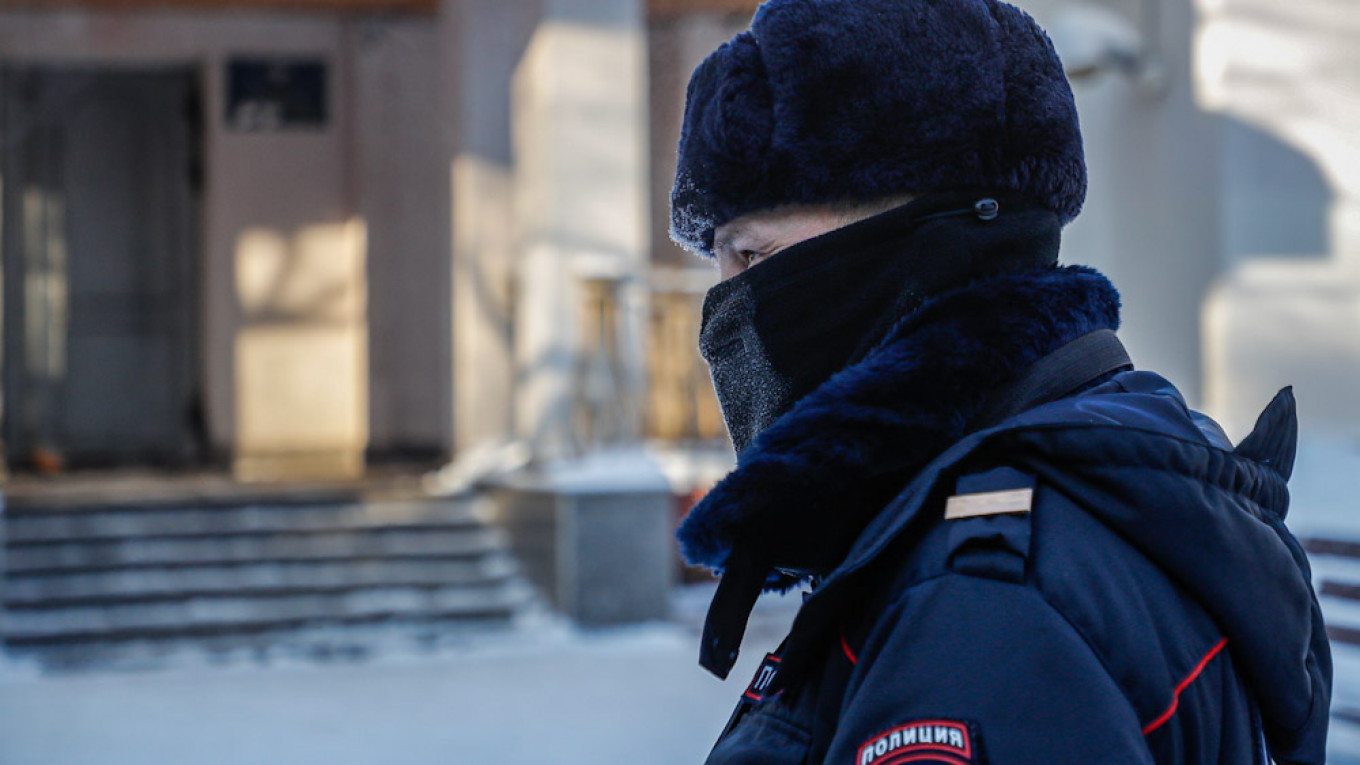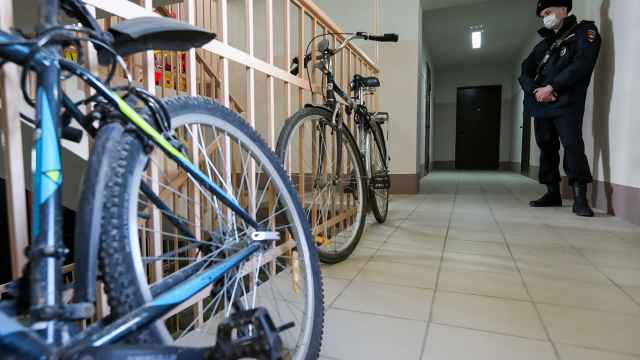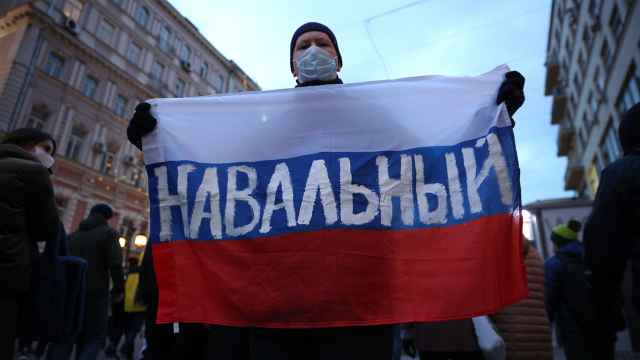A Russian police officer is under suspicion of leaking the travel data of security officers allegedly behind opposition leader Alexei Navalny’s poisoning, the RBC news website reported Tuesday.
The arrest in the central city of Samara comes less than a month after a media investigation named several alleged Rusian Federal Security Service (FSB) chemical-weapons experts who had tailed Navalny for years before his poisoning with the Novichok nerve agent.
The investigative outlet Bellingcat said it used flight manifests and phone records that can be obtained in Russia’s underground market of stolen personal data to trace the secret FSB team’s movements.
On Dec. 29, Samara investigators opened a criminal case into abuse of office against first lieutenant Kirill Chuprov, RBC cited unnamed sources familiar with the investigation and inside the police as saying. He is suspected of providing information from a classified database containing detailed travel information to a third party.
“Their [FSB chemical-weapons experts’] names later appeared in the materials about Alexei Navalny’s poisoning,” RBC quoted one of the sources as saying.
Chuprov was placed under house arrest on suspicion of abuse of office, RBC said, citing the Samara district police station’s press service. FSB officers from the central office in Moscow reportedly visited Samara on the eve of Chuprov’s arrest and the FSB’s Samara field office is overseeing the case.
Bellingcat’s lead investigator Christo Grozev has expressed concern over the safety of its sources in several interviews since the investigation.
Navalny, 44, was jailed for 30 days Monday after returning to Russia from Germany, where he has spent five months rehabilitating from what Western scientists said was Novichok poisoning.
The anti-Kremlin activist accuses President Vladimir Putin of ordering the Novichok assassination attempt. Russia says it will not open a criminal investigation until Germany provides medical analyses proving that Navalny was poisoned with Novichok.
A Message from The Moscow Times:
Dear readers,
We are facing unprecedented challenges. Russia's Prosecutor General's Office has designated The Moscow Times as an "undesirable" organization, criminalizing our work and putting our staff at risk of prosecution. This follows our earlier unjust labeling as a "foreign agent."
These actions are direct attempts to silence independent journalism in Russia. The authorities claim our work "discredits the decisions of the Russian leadership." We see things differently: we strive to provide accurate, unbiased reporting on Russia.
We, the journalists of The Moscow Times, refuse to be silenced. But to continue our work, we need your help.
Your support, no matter how small, makes a world of difference. If you can, please support us monthly starting from just $2. It's quick to set up, and every contribution makes a significant impact.
By supporting The Moscow Times, you're defending open, independent journalism in the face of repression. Thank you for standing with us.
Remind me later.






